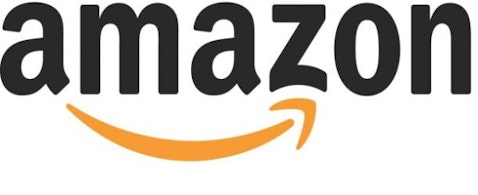Nowadays, shopping online is cheap and convenient. In fact, many consumers are finding that they prefer online retailers to traditional brick-and-mortar stores. According to a yStats estimate, there will be 3 billion people around the world connected to the Internet by 2015 – an increase of 50% from the 2 billion that were connected in 2011. In this case at least, demographics is destiny: the growth in access has already opened vast opportunities for online retailers and will continue to act as a tailwind for the industry.
Here are three companies that will benefit from the upcoming increase in Internet usage and the upswing of the online purchasing trend. These companies are focused on increasing their market shares and booking higher revenues through more efficient expansion strategies, advanced technologies, and implementing pricing strategy.
New strategies will drive profits higher
Amazon.com, Inc. (NASDAQ:AMZN) launched its Kindle e-book store in China in December of last year. The store initially offered 25,000 e-books, among them bestsellers by Chinese authors. It currently offers 47,000 e-books in local languages. Amazon expects that the number of Internet users in China will show an astounding growth, from 538 million in 2012 to 800 million in 2015. Since Chinese customers are not accustomed to paying for e-books, Amazon.com, Inc. (NASDAQ:AMZN) has reduced its prices to $1.50 per book, compared to $9.99 in the United States. Amazon estimates that the increase in Internet users will spur China’s e-book market to grow by 52% year-over-year, amounting to $1.34 billion in 2014.
Amazon.com, Inc. (NASDAQ:AMZN) also offers a platform to more than 2 million third-party sellers to sell their products along with additional services such as warehousing, gift wrapping, and shipment. For these services, the company charges a fee to the sellers. On Apr. 4, 2013, this fee was increased from 7% to 12% in the U.K. and Europe. This increased fee structure is applicable on products including consumer electronics, automotive parts, and other goods. More than 40% of Amazon.com, Inc. (NASDAQ:AMZN)sales are through third-party sellers, so the increased fee will generate higher revenue going forward. The company’s revenue in the first quarter ending in March increased by 22% to $16.7 billion, year-over-year. The company estimates that it will generate approximately $76.1 billion in revenue this year and $93.7 billion next year.
PayPal and Marketplace boosting revenue
eBay Inc (NASDAQ:EBAY)’s wholly-owned subsidiary, PayPal, enables billions of Internet users to buy and sell online through its global platform for electronic money transfer. Paypal has been a major growth driver for eBay. According to a report by Nielsen Global Online Survey, there are 875 million customers around the world who shop on the web, an increase of 40% in the last two years. 60% of these customers shop through PayPal. As a result, PayPal’s revenue increased by 18% year-over-year to $1.5 billion in the first quarter of 2013. With the support of PayPal, eBay Inc (NASDAQ:EBAY) plans to increase its global commerce to $300 billion by 2015, up from $175 billion in 2012. This will boost the company’s total revenue by 50% by the end of 2015, up from $14.03 billion in 2012.
Another growth driver for eBay is its ”Marketplace.” The company is continuously modifying its Marketplace by updating features like search, selection, and safety. As a result, the eBay Inc (NASDAQ:EBAY) Marketplace saw a rise of 3.9 million active users to 116 million, and 13% year-over-year growth to $2 billion in the quarter that ended in March. Currently, the company is focusing more on its mobile app as the number of global smartphone users is growing. eBay Inc (NASDAQ:EBAY) recently launched an updated version 3.0 of its app for iPhone and iPad users, enhancing its look and feel. Through this, the company will generate total revenue of more than $3.8 billion in the second quarter of 2013, up from $3.75 billion in the first quarter.
A subsidiary opening new opportunity
Nook Media, a subsidiary of Barnes & Noble, Inc. (NYSE:BKS) announced the launch of the “Nook Snaps” program on June 6, 2013. As readers increasingly move away from print books to tablets, phones, and computers, this program has huge potential. The Yankee Group estimates global e-book sales will rise to 72 million units in 2014, up from around 11 million units sold in 2010. The company under the Nook Snap program will offer original works of almost 5,000 words, shorter than a complete book but longer than a traditional magazine or newspaper article. These shorter-length stories are the first initiative designed to cater to the diminished attention span of Internet-era readers. Additionally, stories will offer audio and video to increase the reader’s engagement and interest. Nook will refresh its exclusive works bimonthly, adding three to five new original works at a price of $1.99 each.
Nook Media made a foray into the tablet market with an Android-based offering, the Nook HD+, in November 2012. It bombed with customers, as it was costly and had a low-resolution screen. Poor sales dragged the Nook retail segment’s revenue down 12.6% year-over-year to $311 million in fiscal year 2012. Barnes & Noble, Inc. (NYSE:BKS) has announced plans to gradually discontinue its Android-based Nook tablets through fiscal year 2014. After this segment is discontinued, Nook content will be available through Nook apps on third-party devices. It is expected that Nook will generate revenue of $1.09 billion in fiscal year 2013, up from $933 million in 2012.
Bottom line:
Amazon.com, Inc. (NASDAQ:AMZN) is expanding in China, and keeping prices low for its e-books. It has increased its fees for the third party sellers, which will boost the revenue of the company.
In the case of eBay Inc (NASDAQ:EBAY), PayPal’s flexible payment procedure is increasing the active registered accounts for the company. Its continuing modifications to its Marketplace are also enhancing its users’ experiences.
Barnes & Noble, Inc. (NYSE:BKS) is currently focusing on its Nook subsidiary, and with the launch of Nook Snap should increase its revenue. The company plans to discontinue its Android-based Nook tablet devices as it is a loss-making segment.
All three of these stocks are a “buy” for the long term.
Shweta Dubey has no position in any stocks mentioned. The Motley Fool recommends Amazon.com, Inc. (NASDAQ:AMZN) and eBay Inc (NASDAQ:EBAY). The Motley Fool owns shares of Amazon.com, Inc. (NASDAQ:AMZN) and eBay Inc (NASDAQ:EBAY).
The article As the Internet’s Population Explodes, So Will the Growth of These Three Companies originally appeared on Fool.com.
Shweta is a member of The Motley Fool Blog Network — entries represent the personal opinion of the blogger and are not formally edited.
Copyright © 1995 – 2013 The Motley Fool, LLC. All rights reserved. The Motley Fool has a disclosure policy.






